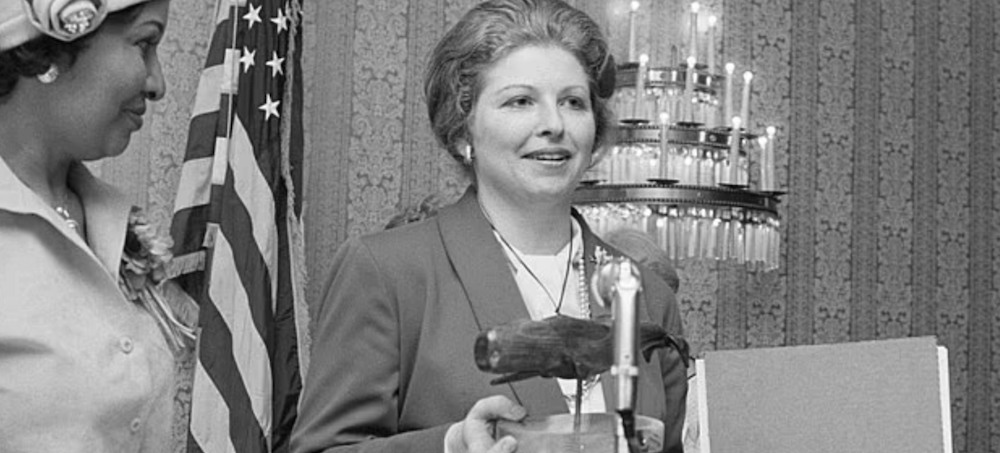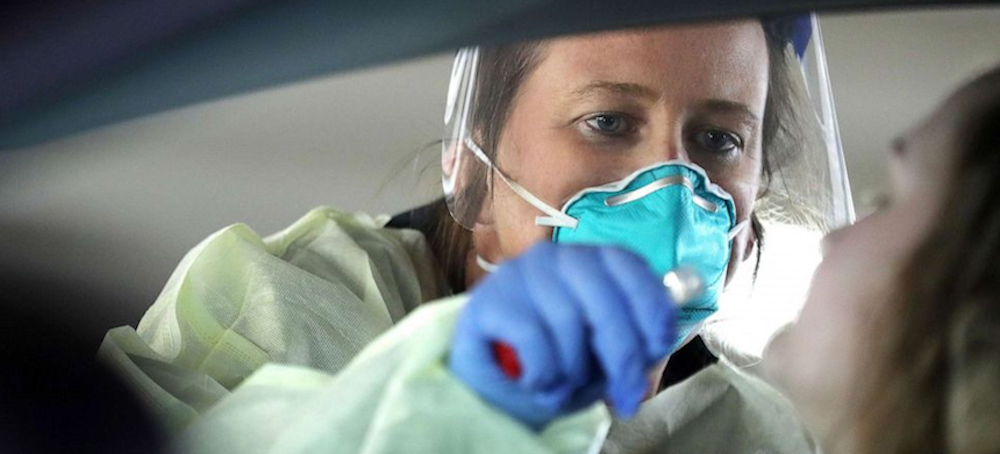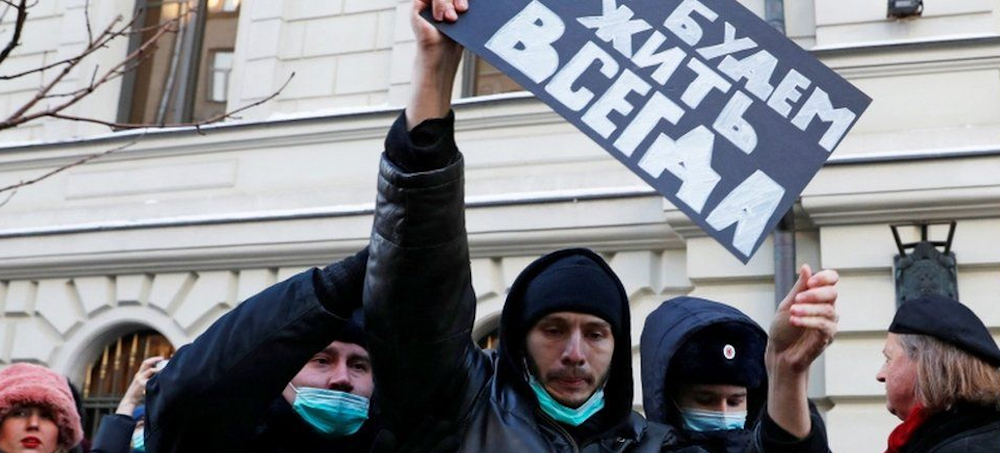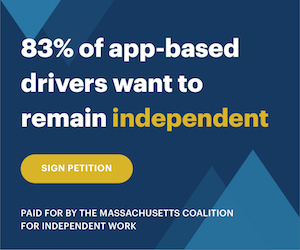We are holding our own right now along side of high-powered political fundraising machines using very sophisticated methods … and we are holding our heads above water.
If you come here, if you believe what we do makes a difference, help out with what you can afford.
In peace and solidarity.
Marc Ash
Founder, Reader Supported News
If you would prefer to send a check:
Reader Supported News
PO Box 2043 / Citrus Heights, CA 95611
Follow us on facebook and twitter!
Live on the homepage now!
Reader Supported News
The perils of state run media are painfully self-effacing. When the state controls the media the state controls all aspects and affairs of the nation. The state is free to define the truth and its ramifications.
But what happens when the media controls the state? You get a corrupt message and result for sure but you can get far worse. Let’s assume hypothetically, an aspiring authoritarian sought the powers of the US presidency and let’s say that his dark theatrical style lent itself well to television ratings. Good television ratings obviously can generate enormous revenue. And let’s say that in pursuit of those high-value theatrics for-profit commercial media companies elected to award the aspiring authoritarian around-the-clock coverage of every word he spoke at every rally, literally propelling him to a major political party presidential nomination and the presidency itself. And with the powers of the US President now in hand the aspiring authoritarian sought to cancel free and fair elections. What would happen then? Historically control of the media and all news reporting would soon follow. And that leads us full-circle to state-run-media.
Pramila Jayapal is a frequent guest on cable news, Alexandria Ocasio-Cortez rarely is. It tells you a great deal about how and why power flows on and off Capitol hill.
Pramila Jayapal is a good Progressive. She is passionate about Progressive positions and lends her lived experience to her vision for leadership admirably. She is also patient and non-confrontational in her approach to problem solving. Her leadership style is stateswoman like, with an air of gravitas badly needed in today’s highly polarized political atmosphere.
Pramila Jayapal also seems wholly unprepared for a knife fight. That’s inconvenient because capitol hill even in the best of times relates more like the Sharks and the Jets from West Side Story than rational adults trying to reach productive solutions.
Alexandria Ocasio-Cortez on the other hand sees through the game. She understood where men like Josh Gottheimer and Joe Manchin were going and what their intentions were. Alexandria Ocasio-Cortez was prepared for battle and she understood fighting that battle with a strategic advantage would have a far greater probability of success than ceding responsibility to fight for Progressive priorities to Joe Biden in the Oval Office.
House Progressives entered 2021 with a historic Congressional advantage. With a caucus estimated at more than 100 members they had tremendous strength in numbers. What they lacked was commitment and leadership. 100 members is great, but not if they cut and run at the first sign of trouble. 20 Progressives who are truly prepared to stand shoulder-to-shoulder and fight might have been quite a bit more effective.
Getting the Build Back Better Act or the For the People Act across the finish line was always going to be the hardest part Alexandria Ocasio-Cortez understood that Pramila Jayapal appears not to have. House Progressives should have been prepared for the knife fight they knew or should have known was coming. Instead they settled for promises. Now they have to fight the exact same battle without the leverage they gave away.
Pramila Jayapal is a frequent guest on cable news, Alexandria Ocasio-Cortez rarely is. It tells you a great deal about how and why power flows on and off Capitol hill. If the process plays out on commercial news broadcasts then commercial news broadcasters will broker the result and the result will likely be what best suits parent companies of commercial news broadcasts.
Progressives fight, it’s what we do. Pramila Jayapal and Alexandria Ocasio-Cortez are both good progressives. Alexandria Ocasio-Cortez may have a bit more fight in her. Time to rally truly committed House Progressives and prepare to get back into the good fight.
AOC for House Progressive Chair.
###
 A police officer. (photo: Adobe Stock)
A police officer. (photo: Adobe Stock)
Over the past two decades, Dr. Gary Vilke has established himself as a leading expert witness by repeatedly asserting that police techniques such as facedown restraints, stun gun shocks and some neck holds did not kill people.
Officers in Fresno had handcuffed 41-year-old Joseph Perez and, holding him facedown on the ground, put a spinal board from an ambulance on his back as he cried out for help. One officer sat on the board as they strapped him to it. The county medical examiner ruled his death, in May 2017, a homicide by asphyxiation.
Vilke, who was hired by the ambulance provider, charged $500 an hour and provided a different determination. He wrote in a report filed with the court last July that Perez had died from methamphetamine use, heart disease and the exertion of his struggle against the restraints.
Vilke, an emergency medicine doctor in San Diego, is an integral part of a small but influential cadre of scientists, lawyers, physicians and other police experts whose research and testimony is almost always used to absolve officers of blame for deaths, according to a review of hundreds of research papers and more than 25,000 pages of court documents, as well as interviews with nearly three dozen people with knowledge of the deaths or the research.
Their views infuriate many prosecutors, plaintiff lawyers, medical experts and relatives of the dead, who accuse them of slanting science, ignoring inconvenient facts and dangerously emboldening police officers to act aggressively.
The experts also intersect with law-enforcement-friendly companies that train police officers, write police policies and lend authority to studies rebutting concerns about police use of force.
Together they form what often amounts to a cottage industry of exoneration. The dozen or so individuals and companies have collected millions of dollars over the past decade, much of it in fees that are largely underwritten by taxpayers.
Many of the experts also have ties to Axon, maker of the Taser: A lawyer for the company, for example, was an early sponsor of the Institute for the Prevention of In-Custody Deaths, a commercial undertaking that is among the police-friendly entities.
The New York Times identified over 100 instances of in-custody deaths or life-threatening injuries from the past 15 years in which experts in the network were hired to defend the police. The cases were nearly all lawsuits. About two-thirds of the cases were settled out of court; of the 28 decided by judges or juries, 16 had outcomes favoring the police. (Some cases are pending.)
Beyond the courtroom, the individuals and businesses have offered instruction to thousands of police officers and medical examiners, whose cause-of-death rulings often help determine legal culpability. Lexipol, a Texas-based business whose webinars and publications have included experts from the network, boasts that it helped write policy manuals for 6,300 police departments, sometimes suggesting standards for officers’ conduct that reduce legal liability. A company spokesperson said it did not rely on the researchers in making its policies.
Some researchers and doctors in this ecosystem who responded to questions from the Times said they did not assist law enforcement but provided unbiased results of scientific research and opinions based on the facts of each case. Several pointed to research demonstrating that police struggles overall have an exceedingly low risk of death. They also highlighted health issues that could cause deaths in such circumstances, including drug use, obesity, psychological disturbances and genetic mutations that may predispose people to heart problems.
“Sensationalism, without offering scientifically demonstrated better control techniques, adds no benefit, and merely exacerbates the existing tensions between law enforcement and the society at large,” said Mark Kroll, a biomedical engineer who has backed the idea of an “arrest-related death syndrome” as an explanation of the deaths.
Others in the network, including Vilke, said it was wrong to characterize their work as favoring the police, and suggested the Times’ analysis misrepresented it. “I would disagree,” Vilke said when the Times shared its findings with him. Another of the experts, Dr. Steven Karch, sent papers suggesting Black males and people exerting themselves were generally more likely to have sudden cardiac death.
Lawyers for Derek Chauvin, the former Minneapolis police officer who was ultimately convicted in last year’s murder of George Floyd, also drew upon the same network of researchers and experts. In particular, they turned to the defense of prone restraint, a technique in which officers subdue subjects facedown, as happened to Floyd. The work of Kroll, who has a doctorate in electrical engineering but no medical degree, was cited by the Chauvin defense as proof that putting body weight on someone facedown does not cause asphyxia.
According to court documents, Perez had recently taken methamphetamines when police saw him behaving erratically. They handcuffed and tried to calm him, at one point putting a towel under him to keep him from injuring his face.
After an ambulance arrived, they placed a backboard on top of him and an officer sat on it. In a deposition, the officer said he had been trained that doing so posed no danger of asphyxia. A captain from the department said in the case that the training had relied on an article by Kroll.
“The problem is that when officers get sued in these cases,” said Neil Gehlawat, the lawyer for Perez’s family, the cadre of researchers insist that “‘no one can die this way,’ and then officers start to believe it.”
Shaping the Science
The physicians, scientists and researchers who come to the defense of law enforcement officers often cite experiments conducted on volunteers. They shock them with Tasers, douse them with pepper-spray or restrain them facedown on the ground.
Their published findings are usually the same: that there is no evidence that the actions have enough of an effect to cause death.
A Times analysis of more than 230 scientific papers in the National Library of Medicine database published since the 1980s showed those conclusions to be significantly different from those published by others, including studies about restraints, body position and excited delirium.
Nearly three-quarters of the studies that included at least one author in the network supported the idea that restraint techniques were safe or that the deaths of people who had been restrained were caused by health problems. Only about a quarter of the studies that did not involve anyone from the network backed that conclusion. More commonly, the other studies said some restraint techniques increased the risk of death, if only by a small amount.
Vilke’s first report on police restraint was funded by a $33,900 grant from San Diego County during a lawsuit over the 1994 death of Daniel Price. A woman reported seeing odd behavior from Price, 37, who had taken methamphetamines; officers restrained him facedown, his hands and feet tied together.
As part of their research, Vilke and others hogtied healthy volunteers. They observed that measurements of their lung functions decreased by up to 23%, which they concluded was not clinically significant because similar levels of diminished lung capacity could still be considered normal. The judge in the Price case cited the research when he dismissed the lawsuit.
The study and others have been challenged by some scholars and physicians because they are based on controlled conditions that are unlike real life, said Justin Feldman, a social epidemiologist at Harvard University who studies patterns of deaths in law enforcement custody.
“There’s a fundamental problem in terms of study design,” he said. “They’re not using people with more severe mental and physical disabilities. They’re not doing it with people who have taken drugs. When they’re testing Tasers, they aren’t using them as many times as you might see in some deaths.”
When their studies appeared in peer-reviewed publications, the network of experts acknowledged that their work had limitations. But when discussing the research in court, or during trainings and elsewhere, some of them used more expansive language, did not mention conflicting work, or said they had fully refuted scholars who disagreed.
A Network Forms
Dr. Charles Wetli, a former Miami medical examiner who died last year, was among the first to publish research that launched what has become an industry of sorts defending police officers. He wrote in the 1980s about men who had taken cocaine and died, many while being subdued by the police. He attributed the deaths to a condition he called excited delirium, when someone becomes aggressive from a mental illness or psychoactive drugs.
Later, in 1994, two former law enforcement officers, Michael A. Brave and John G. Peters Jr., described in a paper what they called custody death syndrome. The condition, they wrote, had “no apparent detectable anatomical cause” but could be associated with excited delirium or other vague diagnoses.
In describing the death of a hypothetical suspect, they focused on potential liability: “You immediately cringe at the thought of the critical scrutiny you will soon be facing by the media, by council officials and by special interest groups,” they wrote.
The two men later became affiliated with both the Institute for the Prevention of In-Custody Deaths and Americans for Effective Law Enforcement, another group that provides legal resources for officers. Brave also became a lawyer for Taser.
In an interview, Peters said he founded the Prevention of In-Custody Deaths in 2005 because so many deaths were being blamed on Tasers, which he characterized as one of many misguided criticisms of police conduct. The institute conducts research and training that often rebuts the criticism and is one of several commercial forums that draw like-minded researchers about law enforcement behavior.
Taser provided some early funding to the institute in exchange for training programs, Peters said, and one of its initial sponsors was Brave, who joined Taser’s legal department around the same time.
The business of supporting law enforcement can be lucrative. Not all of the researchers testify frequently in court, but when they do, experts associated with the network typically earn $500 to $1,000 an hour for testimony and depositions.
The Times found that, with rare exceptions, when members of this network weigh in on a case in court, they side with the police.
And assessing the effectiveness of the opinions exonerating the police is difficult because most cases settle or are decided without explanation.
But several cases reviewed by the Times suggest that the research has had far-reaching effects — influencing investigator decisions in death inquests and giving officers assurance that their methods are safe. Some of the experts’ legal statements and educational materials they have prepared for police called safety warnings by Taser and other law enforcement groups outdated or needlessly conservative.
In a deposition in April, the sheriff in Riverside County, California, cited studies backed by the law-enforcement-leaning experts to explain why his deputies held people facedown after handcuffing them. The sheriff, Chad Bianco, described the position as “the absolute safest place for any subject.”
Two years ago, deputies working for Bianco found Kevin Niedzialek, 34, bleeding from a head wound and behaving strangely after taking methamphetamines. They shocked him twice with a Taser, and held him facedown.
When they rolled him onto his back, Niedzialek was unresponsive. He died the next day.
 Sarah Weddington. (photo: Bettmann Archive)
Sarah Weddington. (photo: Bettmann Archive)
‘Remarkable woman’ Weddington hailed for role in 1973 case that established right to abortion
Susan Hays, a former student of Weddington’s and a Democratic candidate for Texas agriculture commissioner, announced on Twitter that Weddington died on Sunday morning “after a series of health issues”.
Alexis McGill Johnson, president and chief executive of Planned Parenthood, the largest US provider of reproductive services including abortions, tweeted: “What a loss. What a tremendous legacy.
“Planned Parenthood will continue to honor Sarah Weddington’s work every day – by keeping up the fight to ensure that everyone has access to abortion.”
Steve Vladeck, a professor at the University of Texas School of Law, from which Weddington graduated, wrote: “Sarah Weddington was 26 (!) when she first argued Roe before [the supreme court] in December 1971, just over three years after graduating.
“A remarkable woman, a remarkable career, and a remarkable life. May her memory be a blessing.”
Rabbi Danya Ruttenberg, of the National Council of Jewish Women, tweeted: “May her memory be a blessing that lights our way in our fight for abortion access and equity for all.”
Julián Castro, a Texas politician who was housing secretary under Barack Obama and ran for the Democratic presidential nomination in 2020, wrote: “Sarah Weddington was a proud Texan who led the charge to protect reproductive rights under Roe v Wade.
“She leaves behind an incredible legacy – one we must defend now more than ever.”
He was referring to growing threats to Roe v Wade, including the Dobbs v Jackson Women’s Health Organization case, heard at the supreme court earlier this month, which could weaken provisions of the landmark ruling.
Colin Allred, a civil rights attorney and Democratic congressman for Texas’s 32nd district, touched on the supreme court’s decision to uphold a Texas abortion law, the most extreme in the US to date, which bans abortions at six weeks and does not make exceptions for invest and rape.
“Texas was home to Sarah Weddington who argued Roe, which no longer exists here,” Allred wrote. “Our history provides hope for our future. We must keep fighting for a better Texas.”
Celia Israel, a Democratic member of the Texas state legislature, tweeted about studying under Weddington at the University of Texas, Austin.
“It was always hard to just call her ‘Sarah’,” Israel wrote. “She commanded respect … she taught a leadership class, held me to high standards and encouraged me to get involved and make my mark.
“As is the case with teachers and leaders we look up to, we are their legacy.”
In an interview with the Guardian in 2017, Weddington predicted: “Whatever else I do in my life, the headline on my obituary is always going to be ‘Roe v Wade attorney dies’.”
She was at peace with that, she said.
“I think most women of my generation can recall our feelings about the fight,” she said. “It’s like young love. You may not feel exactly the same, but you remember it.”
 A student in classroom. (photo: Ina Fassbender/AFP)
A student in classroom. (photo: Ina Fassbender/AFP)
Omicron threat stokes fears coast to coast but leading public health expert says ‘We know how to keep schools open and safe’
Over the past three weeks, as Omicron-related cases soared in New York City and elsewhere, the number of children hospitalised in New York with Covid-19 quadrupled, the state health department said.
The California state epidemiologist Dr Erica Pan wrote on Twitter: “Unfortunately New York is seeing an increase in pediatric hospitalisations (primarily amongst the unvaccinated), and they have similar [five- to 11-year-old] vaccination rates.”
Across New York state, about 16% of five- to 11-year-olds and 71% of 12- to 17-year-olds are fully vaccinated.
“Please give your children the gift of vaccine protection as soon as possible as our case [numbers] are increasing rapidly,” Pan wrote.
Rising numbers of pediatric cases have convinced officials in some states to order a return to remote learning after the winter break. Around 300 schools in Maryland, New Jersey, New Mexico and New York will remain closed.
In Mount Vernon, a New York suburb, virtual learning is scheduled until at least 18 January.
“I have been very reluctant to close schools but given the current trends in Covid cases it would be risky not to do so,” district superintendent Kenneth Hamilton wrote.
In Maryland, Prince George’s county public schools, one of the 20 largest districts in the US, transitioned more than 136,500 students to virtual learning last week.
The district chief executive, Monica Goldson, told families staff “must be able to deliver in-person instruction and other activities in conditions that prioritise their own health, as well as the wellbeing of the school community.
“The increased positivity rates have significantly challenged the ability to do so, causing anxiety among many school communities and disruption to the school day.”
In New Jersey, Paterson public schools will start 2022 with two weeks remote.
“A surge of new cases has occurred in north-eastern New Jersey and it is expected that the trend will continue through the holiday break,” said the superintendent, Eileen Shafer.
Some officials have expressed frustration. Dan Domenech, director of the School Superintendents Association, told Newsweek: “Just when we thought this past October – when we had about 98% of kids back in schools in person – that things were moving in the right direction, here we are right back where we were last year.”
On Sunday, a leading health expert questioned the need for any schools to close.
Ashish Jha, dean of the Brown University School of Public Health, told Fox News Sunday: “We know how to keep schools open, we know how to keep them safe. This really shouldn’t even be on the table. I’m disappointed to see this happening.
“We know that for kids being in school is the right thing for them, for their mental health, for their education. And we have all sorts of tools to keep schools open so I don’t really understand why school districts are [closing schools].
“… There could be times when you have such severe short staffing shortages that it may be hard to keep schools going. That really should be the only context I think at this point.”
Concern about Omicron infections among children remains high, however. On Friday, Christmas Eve, the New York health department warned healthcare providers of rising numbers of child hospitalisations around New York City, where Omicron was first recorded on US soil.
The department warned that admissions rose four-fold from the week starting 5 December to the week starting 19 December. Approximately half the admissions were of children under five and thus not eligible for vaccines. For the week starting 19 December, none of the five- to 11-year-old patients were fully vaccinated.
“The risks of Covid-19 for children are real,” said acting state health commissioner Dr Mary Bassett. “We are alerting New Yorkers to this recent striking increase in pediatric Covid-19 admissions so that pediatricians, parents and guardians can take urgent action to protect our youngest New Yorkers.”
The health department advised parents to protect “children who are five years and older by getting them fully vaccinated and protect children under five by making sure all of those around them have protection through vaccination, boosters, mask-wearing, avoiding crowds and testing”.
The California public health director, Dr Tomás Aragón, warned to expect rising admissions there.
“Why? Omicron is so contagious that it finds unvaccinated/non-immune people who are most vulnerable for hospitalisations and deaths.”
Throughout the pandemic, experts have said children are less likely to develop serious illness. For the week from 9 to 16 December, the American Academy of Pediatrics reported 169,964 pediatric Covid-19 cases, representing 1.8% to 4.1% of hospitalised patients.
 A healthcare worker and a patient. (photo: ABC News)
A healthcare worker and a patient. (photo: ABC News)
In what they describe as the most comprehensive analysis to date of the virus’s distribution and persistence in the body and brain, scientists at the U.S. National Institutes of Health said they found the pathogen is capable of replicating in human cells well beyond the respiratory tract.
The results, released online Saturday in a manuscript under review for publication in the journal Nature, point to delayed viral clearance as a potential contributor to the persistent symptoms wracking so-called long COVID sufferers. Understanding the mechanisms by which the virus persists, along with the body’s response to any viral reservoir, promises to help improve care for those afflicted, the authors said.
“This is remarkably important work,” said Ziyad Al-Aly, director of the clinical epidemiology center at the Veterans Affairs St. Louis Health Care System in Missouri, who has led separate studies into the long-term effects of COVID-19. “For a long time now, we have been scratching our heads and asking why long COVID seems to affect so many organ systems. This paper sheds some light, and may help explain why long COVID can occur even in people who had mild or asymptomatic acute disease.”
The findings haven’t yet been reviewed by independent scientists, and are mostly based on data gathered from fatal COVID-19 cases, not patients with long COVID-19 or “post-acute sequelae of SARS-CoV-2,” as it’s also called.
Contentious findings
The coronavirus’s propensity to infect cells outside the airways and lungs is contested, with numerous studies providing evidence for and against the possibility.
The research undertaken at the NIH in Bethesda, Maryland, is based on extensive sampling and analysis of tissues taken during autopsies on 44 patients who died after contracting the coronavirus during the first year of the pandemic in the U.S.
The burden of infection outside the respiratory tract and time to viral clearance isn’t well characterized, particularly in the brain, wrote Daniel Chertow, who runs the NIH’s emerging pathogens section, and his colleagues.
The group detected persistent SARS-CoV-2 RNA in multiple parts of the body, including regions throughout the brain, for as long as 230 days following symptom onset. This may represent infection with defective virus, which has been described in persistent infection with the measles virus, they said.
In contrast to other COVID-19 autopsy research, the NIH team’s post-mortem tissue collection was more comprehensive and typically occurred within about a day of the patient’s death.
Culturing coronavirus
The NIH researchers also used a variety of tissue preservation techniques to detect and quantify viral levels, as well as grow the virus collected from multiple tissues, including lung, heart, small intestine and adrenal gland from deceased Covid patients during their first week of illness.
“Our results collectively show that while the highest burden of SARS-CoV-2 is in the airways and lung, the virus can disseminate early during infection and infect cells throughout the entire body, including widely throughout the brain,” the authors said.
The researchers posit that infection of the pulmonary system may result in an early “viremic” phase, in which the virus is present in the bloodstream and is seeded throughout the body, including across the blood-brain barrier, even in patients experiencing mild or no symptoms. One patient in the autopsy study was a juvenile who likely died from unrelated seizure complications, suggesting infected children without severe COVID-19 can also experience systemic infection, they said.
Immune response
The less-efficient viral clearance in tissues outside the pulmonary system may be related to a weak immune response outside the respiratory tract, the authors said.
SARS-CoV-2 RNA was detected in the brains of all six autopsy patients who died more than a month after developing symptoms, and across most locations evaluated in the brain in five, including one patient who died 230 days after symptom onset.
The focus on multiple brain areas is especially helpful, said Al-Aly at the Veterans Affairs St. Louis Health Care System.
“It can help us understand the neurocognitive decline or ‘brain fog’ and other neuropsychiatric manifestations of long COVID,” he said. “We need to start thinking of SARS-CoV-2 as a systemic virus that may clear in some people, but in others may persist for weeks or months and produce long COVID – a multifaceted systemic disorder.”
 Supporters hold placards saying "we will live forever" with Memorial's flame symbol above the Russian word "we." (photo: Reuters)
Supporters hold placards saying "we will live forever" with Memorial's flame symbol above the Russian word "we." (photo: Reuters)
Russia's Supreme Court has ordered the closure of International Memorial, Russia's oldest human rights group.
Formally it has been "liquidated" for failing to mark a number of social media posts with its official status as a "foreign agent".
That designation was given in 2016 for receiving funding from abroad.
But in court the prosecutor labelled Memorial a "public threat", accusing the group of being in the pay of the West to focus attention on Soviet crimes instead of highlighting a "glorious past".
Founded in 1989, Memorial became a symbol of a country opening up to the world - and to itself - as Russia began examining the darkest chapters of its past. Its closure is a stark symbol of how the country has turned back in on itself under President Vladimir Putin, rejecting criticism - even of history - as a hostile act.
There were shouts of "shame!" from those in court as the decision was read out.
The ruling also shines a light on the rise in repression in modern-day Russia, where Memorial's own human rights wing now lists more than 400 political prisoners, and independent groups and media are increasingly blacklisted as "foreign agents".
In court, lawyers for Memorial argued that the group's work was beneficial for the "health of the nation". They declared Memorial a friend of Russia, not its enemy, and called the case for liquidation absurd and "Orwellian".
Among the sites the group failed to mark with its "foreign agent" status was the vast database of victims of political repression that it has assembled over three decades of work.
The team argued that any mistakes had been corrected and that shutting down a prominent and respected organisation over such technical errors was disproportionate.
The justice ministry argued that a group's social significance could be no excuse for breaking the law. But the prosecution's closing speech pointed to a deeper motivation for this case.
"International Memorial… is almost entirely focused on distorting historic memory, first and foremost about the Great Fatherland War [World War Two]," Alexei Zhafyarov told the court, accusing the group of creating a false image of the USSR as a "terrorist" state.
Vladimir Putin has placed great store on the Soviet victory over the Nazis in World War Two, part of his hankering for the old days of superpower status - a far more attractive focus for many Russians than the parallel history of secret courts, prison camps and firing squads.
"Why should we, descendants of the victors, be ashamed and repent, rather than take pride in our glorious past? Memorial is probably paid by someone for that," the prosecutor claimed in court.
"They chose us because we are strong and prominent, and because we irritate them," Memorial board member Oleg Orlov recently told the BBC about the move to shutter an organisation he has been with from the start.
"The authorities these days are politicising history, but we say things they don't like. We talk about the difficult pages of the past and that annoys them," he said.
The organisation has faced pressure for many years, but that pressure intensified as Russia was swept by a fiercely patriotic wave following the annexation of Crimea from Ukraine in 2014.
Memorial's walls were smeared with graffiti, its work smeared on state TV as subversive, and in 2016 it was listed as a "foreign agent" - a slur eerily reminiscent of Stalinist times when those marked as "enemies of the people" were persecuted and purged.
Just this October, when a crowd gathered at Memorial's Moscow headquarters to watch Mr Jones, a film about the Stalin-era famine that killed millions in Ukraine, a nationalist mob burst in and rushed on stage calling the audience "fascists" and yelling: "Hands off our history".
Sister organisation Memorial Human Rights Centre, which works to document modern-day political repression and rights violations, is also facing closure for alleged violations of the foreign agents law. A ruling in its own case is expected this week.
Memorial says it will challenge the decisions, including in the European Court of Human Rights.
Oleg Orlov believes the case against both is intended as a warning: "The attack on us is meant as a strong signal to all civil society in Russia. They're saying: 'Look! If we can do this with them, then it's no problem to liquidate all you lot too,'" he told the BBC.
"The time has come to purge the field for good."
 Greta Thunberg. (photo: Getty Images)
Greta Thunberg. (photo: Getty Images)
What she's saying: "The U.S. is actually expanding fossil fuel infrastructure," Thunberg said. "Why is the U.S. doing that?"
- "It should not fall on us activists and teenagers who just want to go to school to raise this awareness and to inform people that we are actually facing an emergency," she added.
Flashback: Thunberg is no stranger to calling out climate actions she feels are ineffective or performative. Last month, she dismissed this year's COP26 as "a PR event" and she accused world leaders of "greenwashing."
Our thought bubble, via Axios' Andrew Freedman: The Biden administration set out ambitious goals for reducing planet-warming greenhouse gas emissions, including reaching 100% clean electricity by 2035 and net-zero emissions by 2050.
- However, Biden's main tool for meeting these goals is bogged down in Congress, putting them in doubt. He also has been combatting an increase in gas prices related to the economic recovery from the coronavirus pandemic and other factors.
- This has led Biden to call for a temporary increase in global oil production. The White House also has not followed through on a campaign promise to crack down on new oil and gas leasing on federal lands, instead aiming for reforming the process. Yet, it is also greatly expanding the areas open to renewables, such as offshore wind energy.
Follow us on facebook and twitter!
PO Box 2043 / Citrus Heights, CA 95611





